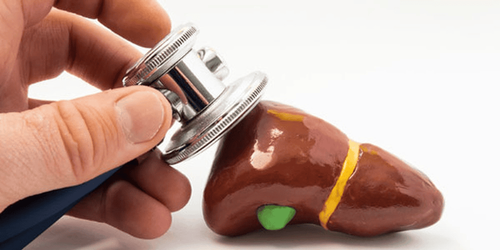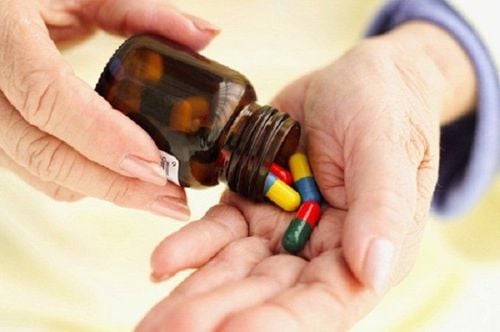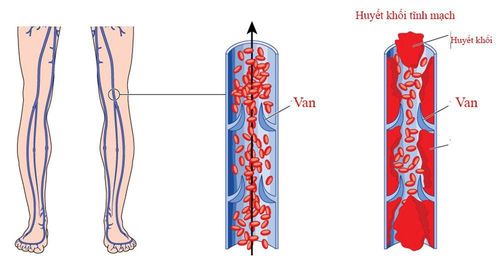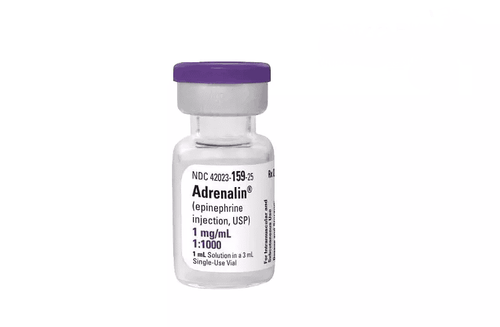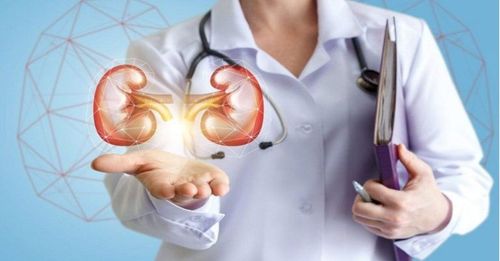This is an automatically translated article.
The article was written by Specialist Doctor I Tran Ngoc Thuy Hang - Resuscitation - Emergency Doctor, Emergency Department - Vinmec Central Park International General HospitalMedicines used to treat and prevent blood clots are called anticoagulants. There are 2 groups: Direct oral anticoagulants: Apixaban, Dabigatran, Edoxaban, Rivaroxaban, these drugs inhibit the function of specific clotting factors. Warfarin, also known as vitamin K antagonist, works by inhibiting the body's use of vitamin K to form blood clots.
1. What should I do if I take one of these medicines?
That depends on the medicine you take. Your medication will come with your doctor's specific instructions. Here are a few things to keep in mind:
Know the strength of the medicine, what the pill looks like, and why your doctor has prescribed it for you - The strength of the medicine is given in milligrams ("mg") . If the color, shape, or dose of your medicine looks different from pills you've taken before, check with your doctor or pharmacist. Take your medicine as directed by your doctor - Take your medicine at the same time every day. Dabigatran should be taken with a full glass of water after meals. Do not change your dose or stop taking your medicine without consulting your doctor. When you forget or miss a dose, consult your doctor for instructions on what to do. Use a pill dispenser with compartments, this helps keep track of your medication and makes sure you've taken the full dose. An exception is Dabigatran, which should be stored in the original packaging or bottle. Have blood tests ordered by your doctor: If you're taking the anticoagulant warfarin, you'll first need regular blood tests to check how your blood clots. This test is called the "PT and INR," and is important to make sure you're getting the correct dose of warfarin for you. When you're on your usual maintenance dose, you don't need to have your PT and INR checked as often, unless your diet changes, you get sick, or start a new medication. If you take apixaban, dabigatran, edoxaban, or rivaroxaban, you won't need frequent blood clotting tests to check how the medicine is working. However, your doctor will sometimes order blood tests to check your kidney or liver function.
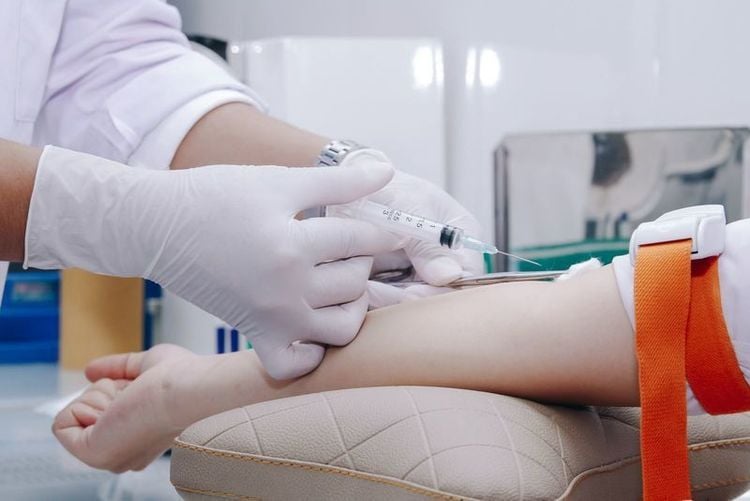
Người bệnh sẽ được bác sĩ chỉ định xét nghiệm máu trong quá trình điều trị
Ask your doctor before taking any new medicine - This includes prescription or over-the-counter medicines, herbs and vitamins. Certain drugs or medications may interact with or affect the action of anticoagulants, especially Warfarin. So it is very important that you check with your doctor before taking any new medicine or stopping any medicine you are already taking. Do not use medicines containing "NSAIDs" to treat pain or fever unless you have talked to your doctor. NSAIDs are a group of drugs that include aspirin, ibuprofen (brand names: Advil, Motrin) and naproxen (brand names: Aleve, Naprosyn) that can increase the risk of bleeding, especially if combined with anticoagulants. In addition, it is important to inform all doctors and pharmacists that you are taking anticoagulants, so they can choose the right medication for you. Follow your doctor's instructions for diet: If you're taking apixaban, dabigatran, edoxaban, or rivaroxaban, there aren't many dietary rules. In some cases, rivaroxaban should be taken with food; If you take warfarin, a vitamin K antagonist, you'll need to pay attention to the amount of vitamin K in your diet because vitamin K affects how warfarin works. If the amount of vitamin K in your diet changes from day to day, this can cause warfarin to not work as well. However, you don't have to avoid foods with vitamin K, as these are usually healthy foods and a little vitamin K is fine. You should eat a similar amount of vitamin K from food every day, with no vitamin K supplements unless your doctor tells you to. Some green leafy vegetables and other vegetables are high in vitamin K such as: green vegetables, beets, spinach, mustard greens, white radishes, red beets, spinach, etc. . . When you are sick, it is necessary to inform the treating doctor. If you have vomiting, diarrhea, fever, or you are unable to eat while on warfarin, you may need to have your blood coagulation checked and or your warfarin dose changed. Wear a medical alert tag: Always wear a bracelet, necklace or a warning tag to notify you that you are taking anticoagulants, the type of medication, and the phone number and name of a loved one in case of emergency contact. That way, if you have an accident and can't explain your condition, people will know how to take care of you.
Anticoagulants are not recommended during pregnancy. Therefore, if you are planning to become pregnant or find out that you are pregnant, it is important to inform your treating doctor immediately.

Cần thông báo với bác sĩ ngay khi phát hiện mang thai
2. Risk factors for taking anticoagulants
Anticoagulants work to prevent blood clots, but they also cause bleeding that is difficult to stop due to trauma or spontaneous bleeding. So it's important to protect yourself from injury and get treatment early when signs of bleeding appear.
Call your doctor right away if:
You have overdosed or cannot take your medicine for any reason. Fall, trauma Have any signs of abnormal bleeding: Gastrointestinal bleeding: upset stomach or vomiting black, red discharge. Pass stools pasty, dark brown, red. Headache, dizziness, slurred speech, numbness in the limbs, nosebleeds that are difficult to stop. Brown or dark red urine. Bleeding gums after brushing teeth. Irregular vaginal bleeding between periods or hypermenorrhea. More bruising after a minor injury. Vomiting, diarrhea, or not being able to eat for more than 24 hours. Fever (temperature > 38 degrees Celsius).
3. What do you need to do to reduce the risk of bleeding?
Prevention of falls such as limiting walking on slippery surfaces, climbing high.
Avoid sports that cause injury.
Be careful when handling sharp tools or avoid them when possible eg sharp knives, saws and razors with straight edges.
Always wear a seat belt in your car and wear a helmet if you ride a bicycle or motorcycle
Avoid drinking alcohol as it can increase the risk of bleeding.
It is necessary to inform the doctor, dentist that you are taking anticoagulants, the name of the drug when you need surgical intervention.
Please dial HOTLINE for more information or register for an appointment HERE. Download MyVinmec app to make appointments faster and to manage your bookings easily.




